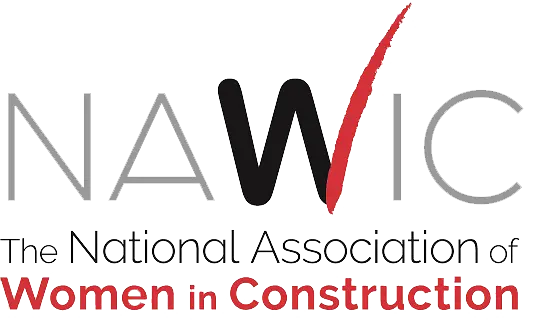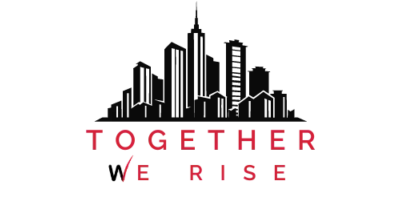Being a Woman in Construction: Period Poverty

Have you ever been stuck in a smelly porta potty trying to change a tampon? Ever need to toss a pad but not have a bin in sight to dispose of it? Or bled through your clothes because you were caught on a jobsite without supplies when your menstrual cycle came early? You are not alone. Being a woman in construction is not easy.
Women across the world face a stigma because of a natural bodily function, their menstrual cycle. In addition to being told there is something shameful about their period, girls are told at an early age that it is not something to talk about. It is not uncommon for women to experience a lack of access to menstrual products, sanitary bins, and hygienic facilities, especially in the workplace, and feel uncomfortable about speaking up for fear of embarrassment or worse, intimidation.
Being a woman in construction, a traditionally male-dominated industry, this menstrual inequity is a Catch-22. With so few female construction workers, there hasn’t been a great drive for companies to provide equitable sanitary facilities. In turn, this inequity has prevented more women from considering construction as a career, limiting the growth of the industry at a time of high demand.
But that is slowly changing. Legislation is being introduced across the United States that addresses menstrual equity to various degrees. For example, the Menstrual Equity for All Act introduced by U.S. Rep. Grace Meng (D-NY) provides “a whole-of-government approach to eradicate period poverty and achieve menstrual equity.”
In California, the Legislature recently recognized the barriers women and nonbinary individuals face on jobsites, which includes access to clean and secure restrooms, an important factor in menstrual equity. Assembly Bill (AB) No. 521, which takes the first steps in the process to require construction jobsites to have at least one separate toilet facility for employees who self-identify as female or nonbinary, passed in June 2023.
Across the globe, changes are being made to rid construction of period poverty and make worksites more sanitary for all workers.
Canada
“Research by the United Way found that more than 20 percent of people who menstruate missed work due to being unable to access menstrual products. Meanwhile, 30 percent of people who menstruate have had to leave work for the same reason. Menstruation, in fact, is one of the top two reasons that women miss work in Canada,” according to this article in the Surrey Now Leader.
BC Infrastructure Benefits is trying to change that. The company, which manages skilled labor for several public infrastructure projects in British Columbia, has committed to providing free period products at its worksites as part of the United Way’s Period Promise initiative.
Across the country, Ontario recently mandated new rules for construction sites that make being a woman in construction easier. In addition to requiring better access to PPE, the provincial government requires at least one women’s bathroom on jobsites, increases the number of toilets on most jobsites, and requires washrooms to be private, enclosed, and have adequate lighting. If running water is not possible, then hand sanitizer must be provided.
UK
Raising awareness about the issues faced by women in construction is important. In the UK, Willmott Dixon Interiors has provided free period products at all of its worksites and even sponsored an online event, “Menstruation is Not Taboo,” to raise awareness. Mark Bennett, Willmott Dixon’s senior building manager and co-chair of the company’s equality, diversity, and inclusion team, has been a strong advocate to end menstrual inequity in construction. In this article for Construction Management, he relates why he believes that “talking about periods and providing period products should be the norm”:
A few years ago, I was out having a coffee with my daughter, when she started her period for the first time. Finding somewhere to purchase the right products, and a clean, hygienic toilet, was quite a challenge. We finally found a nearby hotel, but the experience had a profound effect on me, not only as a father and a man, but also as a building manager working on a male-dominated construction site. This led me to question how women working on construction sites might feel.
New Zealand
In New Zealand, the president-elect of NAWIC’s global affiliate, Colleen Upton, advocates for hygienic toilets and sanitary bins to dispose of period products. These are a “basic need”, she says, that should “just be a part of your site setup checklist” rather than women having to make an often difficult ask.
Being a woman in construction
Menstrual equity is an important issue for women in construction. A lack of sanitary facilities can cause more than embarrassment for women builders. Infections are likely to occur when women don’t change their pad or tampons as often as they should or when they don’t have running water to properly clean up. Tampons left in place too long can also cause toxic shock syndrome and possibly death. Being a woman in construction, there are often dangers on the jobsite, but menstruation shouldn’t be one of them.
Sometimes men are simply unaware that a problem exists. More women in leadership positions in construction could help de-stigmatize menstruation in the industry and increase access to period products while improving sanitary conditions for all workers.
National Association of Women in Construction advocates for women in construction
The National Association of Women in Construction through its chapters and global affiliates supports and advocates for women at all levels in construction. Through an extensive chapter network, its NAWIC Leadership Academy, and the NAWIC Education Foundation, the organization provides women with the tools they need to become successful leaders in the field.
NAWIC has more than 6,100 members in 118 chapters across the US and global affiliates in Canada, Australia, New Zealand, South Africa and the United Kingdom. As the leading organization for women in the industry, NAWIC provides support, networking and mentorship, educational opportunities, leadership training, and advocacy for all women in construction. Contact a chapter near you to learn more.


